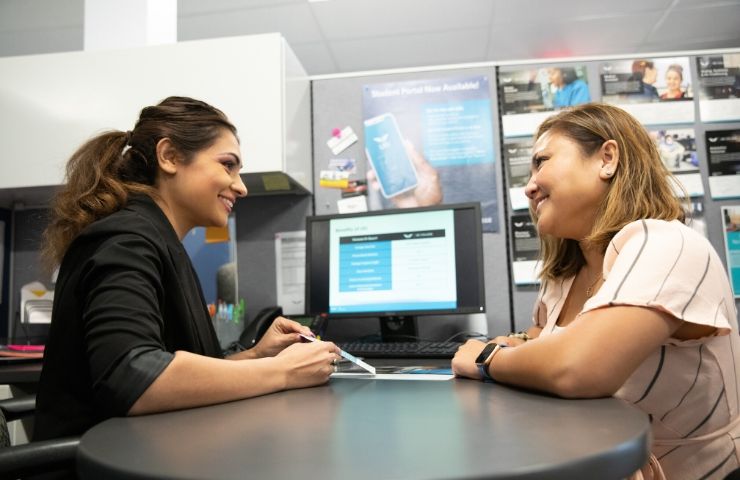
At UEI, we believe it’s never too late to go back to school. If you set foot in our classrooms, you’ll soon realize we welcome students of all ages into our student body, from recent high school graduates to older adults returning to college for the second or third time. Whether you’re going back to school at 30, or are somewhere in your 40s or 50s, going back to college as an adult can be intimidating. If you’re among the many older adults returning to college later in life, you’re not alone, and you’re not without support. From finding the right program to getting enough rest, here are five helpful tips that’ll help make the transition back into student life a little bit easier.
Don’t Forget to Communicate
Deciding to go back to college is a big step- one that will require adjustments from you, your spouse, and the rest of your family. If you’re married and have kids, heading back to school can be extra difficult. For this reason, it’s important that you communicate with your loved ones openly and honestly from the very beginning. Even before you step foot in the classroom, speak with your children and spouse about why you want to go back to school. Setting clear and realistic goals can help alleviate a lot of the tension and, if the rest of your family understands your reasons for going back to school, they’ll be able to help you stay on track.
Find the Right Fit
According to the National Survey of Students in Continuing Education, adult learners thrive in different types of environments than those who may be younger. In most cases, adult learners prefer education that’s affordable and close to their home or work. In addition, many also keep an eye out for non-traditional services, including expanded degree options, day and evening classes, and career counseling services. Before you apply for college, take some time to think about what’s important to you, and choose a career college or university that fits. From reasonable tuition to evening and weekend classes, UEI is a great place for adults returning to college.
Research Financial Aid
For younger students, whose only responsibility is themselves, paying for college is a lot easier. Now that you have a mortgage, a car payment, and children to care for, financial aid may be more important than it was in the past. Fortunately, there are a variety of financial aid options available to students of all ages, including grants and scholarships on a federal and state level. Anyone can qualify, so like everybody else you should apply for FAFSA and look into financial aid options as soon as you decide to go back to school. Going back to college may not be as much of a financial burden as you initially expected, but you’ll never know unless you apply for aid.
Connect with Others
It’s tempting to isolate yourself from other students, especially if you have a busy schedule to adhere to. It may seem like a good idea to leave school as soon as your classes are over, but it’s not. Social connections with others, both inside and outside the classroom, can help you make the most of your time at school. One of the best benefits of going back to college as an adult is being exposed to people you might otherwise not interact with. Take advantage of this opportunity, and allow new relationships to grow. If you connect with individuals who are in the same boat as you, they can act as a built-in support system you never knew you needed.
Get Plenty of Sleep
Perhaps most importantly, make sure to take care of yourself. Major life changes, such as going back to college as an adult, can be very stressful. And, if you’re an adult adding school on top of your professional and personal responsibilities, it’s easy to forget about your health and general well-being. Drink plenty of water, get in some exercise when you can, and don’t forget to get plenty of rest. If you’re feeling super stressed and don’t know where to turn, make an appointment with a career counselor. They may be able to provide helpful tips and advice beyond what’s included on this list.





